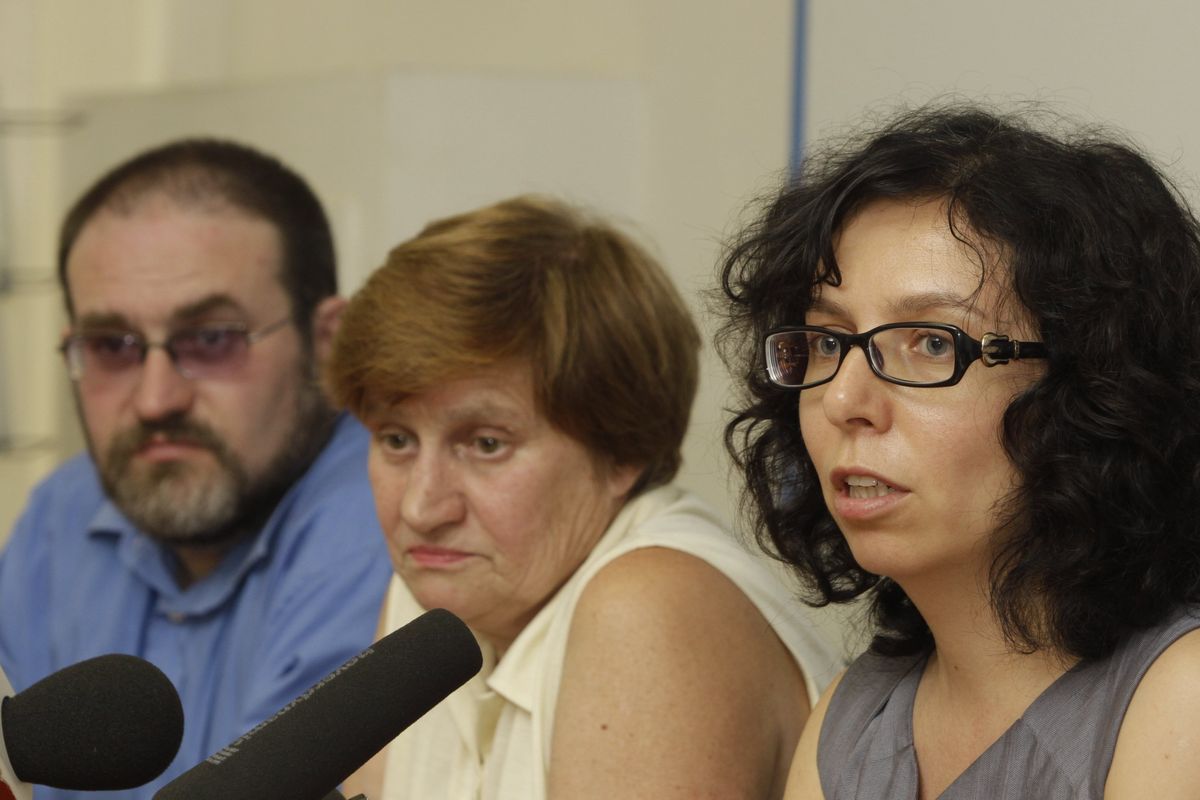U.S., Russia spy swap likely
Russians arrested in New York may be used to free others

WASHINGTON – Across a vast global chessboard, the pieces were set in motion Wednesday.
In Moscow, Igor Sutyagin, an imprisoned physicist, was transported from a prison camp near the Arctic Circle to the high-security Lefortovo facility and ushered into a room to meet with a general from the Russian security services and three U.S. diplomats.
On the other side of the world, five alleged Russian spies due in U.S. federal court Wednesday were instead transferred to New York to join five other suspected spies detained there.
The moves appeared to foreshadow another turn in the already intrigue-laden case of the 10 accused deep cover agents for Russia: The possibility of the largest U.S.-Russia spy swap since the end of the Cold War.
The mother of Sutyagin, the Russian scientist convicted in 2004 of spying for the U.S., told the Los Angeles Times that her son was hastily transported to Moscow from a prison camp and told that if he confessed to spying, he would be among 10 people exchanged “for the 10 Russians recently arrested in the United States.”
In the U.S., lawyers for the accused would say only that talks with federal prosecutors were ongoing.
“We are in negotiations with the government, and they’re of a sensitive nature and we’re not going to comment on them,” said Fiona Doherty, a lawyer representing Anna Chapman, the young Russian redhead who has been fodder for tabloid newspapers.
“I can’t say anything publicly about it right now,” said Charles Burnham, a lawyer for accused spy Patricia Mills.
The 10 spying suspects were officially charged in a federal indictment unsealed in New York on Wednesday of trying to secretly gather information for Russia. An 11th suspect, Christopher Metsos, was arrested in Cyprus last week, but disappeared after being released on bail. The indictment mirrored charges outlined in the criminal complaint that led to their arrests last month.
Arraignment for the 10 defendants in custody is scheduled for today in New York before U.S. District Judge Kimba M. Wood.
As rumors of a spy swap rippled Wednesday across Moscow and Washington, both governments clammed up. State Department spokesman Mark Toner would only confirm that a high-ranking U.S. diplomat, William Burns, discussed the spy case with Russian Ambassador Sergey Kislyak in a meeting at Kislyak’s residence. He referred further questions to the Justice Department, where spokesman Dean Boyd declined to comment.
A 20-person spy swap would be one of the largest in U.S. history. In 1985, the U.S. freed four Eastern Europeans charged with espionage in exchange for 25 Eastern Europeans held prisoner in East Germany and Poland.
In another famous trade, downed U.S. U-2 spy plane pilot Francis Gary Powers was exchanged for KGB spy Col. Rudolph Abel in 1962.
The 10 defendants arrested last month are accused of living double lives by embedding themselves in suburban America in an effort to cultivate influential people and draw out secrets. But they have not been charged with receiving classified information.
Sutyagin, the Russian prisoner taken to Moscow on Tuesday, is a former researcher for the USA and Canada Institute, a Moscow-based think tank. He is serving a 15-year sentence, said his mother, Svetlana Sutyagina.
The 45-year-old scientist was arrested in 1999 and spent five years in pretrial detention. In 2004, Sutyagin was found guilty of passing classified information on Russian submarines and missile systems to a British company called Alternative Future, which the investigation claimed was a CIA front.
After arriving at Moscow’s Lefortovo prison, Sutyagin was taken into a room where he met with a Russian general and three U.S. diplomats, his mother said.
“He was told that he and nine other prisoners will be exchanged” for the Russians recently arrested in the United States, his mother said, adding that her son told her the list was prepared by U.S. officials. “If he agreed, Igor was told he would have to sign a document, which among other things contained a paragraph where Igor was to confess of spying, which he never did before.”
“Under different circumstances my son would have never done that,” Sutyagina said. “But Igor was in such a state of shock that he signed the document.”
Russian and international human rights organizations long have argued that Sutyagin was dealing only with officially published, unclassified information and that his conviction was politically motivated to discourage Russian scientists and intellectuals from cooperating with the West.
Some Russian observers and political commentators hurried to hail reports of an impending spy swap as another sign of improvement in Russian-U.S. relations.
“On the one hand, if the deal is really in the works, that will be the Kremlin’s confirmation that these people were fulfilling some special tasks in the United States in favor of Russia,” said Andrei Kortunov, president of New Eurasia Foundation, a Moscow-based think tank. “On the other hand, that means that both sides want to hush up the affair quickly and thus demonstrate that both Moscow and Washington are ready to leave the spy scandal behind them and continue to develop the positive trend in their relationship.”